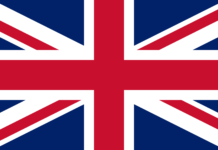PSD leaders criticize the Romanian government’s ability to manage the pandemic
The leader of the Social Democratic Party (PSD) Marcel Ciolacu said that the liberal government and President Klaus Iohannis are responsible for the current epidemiological situation in Romania. The Social Democrat leader said in a post on a social network that the executive did not take the necessary measures to reopen schools safely, is not concerned with securing Remdesivir stocks and did not buy ventilators for ICU units. PSD Vice President Sorin Grindeanu also criticized the decision to close restaurants and bars.
Sorin Grindeanu: Any man who has a business in this field is put in an impossible situation by this government. If you look at an x-ray of the outbreaks, HoReCa (hotels, restaurants, cafes) is on the last place in the pandemic in which we all live. It seems to me that it is a typical PNL (National Liberal Party) decision, taken from one day to the next. I think they are looking for one thing: ‘We have to show that we are acting, that we are willing to hold elections and we want to hold them as soon as possible, so that Romanians do not realize how badly we govern’.
Restaurant owners in Romania, dissatisfied with the closure of indoor activity
Restaurant owners in Romania and their employees are unhappy with the closure of the business inside. Hundreds of people gathered Wednesday night in Victoria Square in Bucharest, near the Government headquarters, to protest against the decision of the Capital Prefecture to suspend the indoor activity of restaurants and bars. Employers consider that public transport and subway congestion are the main cause of the increase in the number of cases of infection. „Apparently, however, there were the fewest cases of coronavirus in restaurants. Now why are we the ones who have to fall first? We have been in a pandemic for seven months now and no action has been taken to actually help us. We want the government to come up with some responsible measures to stop this damn COVID. Closing restaurants is not a solution. Restaurants are not closed in Paris, Rome, Vienna or London. Why?”
President Klaus Iohannis calls on the people to show responsibility in the pandemic context
President Klaus Iohannis pointed out on Wednesday that, in the current epidemiological context, restrictions are inevitable. According to the head of state, the sooner these measures are introduced and complied with, the sooner they will take effect and can be lifted again. Klaus Iohannis once again asked the population to show responsibility, given that Romania is at a critical point in the pandemic.
Klaus Iohannis: Wearing a mask, social distance, hand hygiene, avoiding congestion, working from home where possible are things that are in our power and help us a lot to keep the epidemic under control. No matter how many measures the authorities implement, no matter how many restrictions the state imposes, they lose their effectiveness if some of our fellows refuse to participate in this collective effort. Ultimately, it depends on the conscience of each of us whether we win this unprecedented battle we have been fighting for so many months. Rational behavior and the small sacrifices we are called to make by strictly adhering to preventive measures can save the lives of our fellow human beings.
The Bucharest Forum starts Thrusday, for the first time in online format
The ‘Bucharest Forum’ starts today for the first time in online format, and among the topics is an analysis of ways to prepare for future global shocks, such as the one brought by the COVID-19 pandemic. Prime Minister Ludovic Orban, NATO Deputy Secretary General Mircea Geoana and European Transport Commissioner Adina Valean are among the guests. The forum is organized by the Aspen Institute and the German Marshall Fund in partnership with the Romanian Government. The title of this year’s edition of the Bucharest Forum is „Resistance, the pandemic economy and the great acceleration”. In essence, the forum seeks answers to the problem of increasing the resilience of institutions, but also ways to prepare for possible future global shocks. Another topic on the agenda will be how deep and long the impact of the COVID-19 crisis will prove and what lessons can be learned. In addition, participants will analyze the geopolitical and geoeconomic implications of global balance and competition for power.
Magda Baciu






